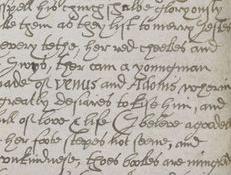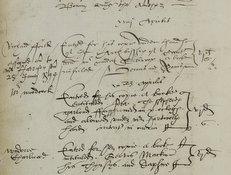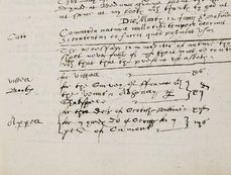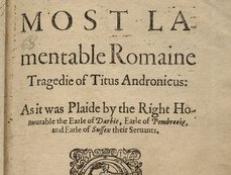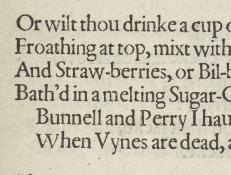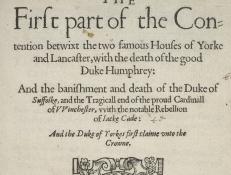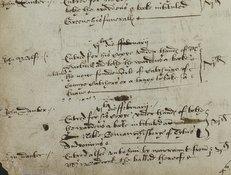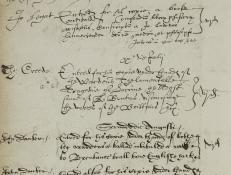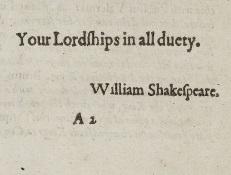To view a sortable list, please visit the Resource
All Documents
1593
SHAKESPEARE DOCUMENTED IS STILL GROWING! Descriptive content and transcriptions will continue to be added, updated and expanded. Check back for regular updates!
April 18, 1593
Venus and Adonis was William Shakespeare’s first work to be entered into a Stationers’ Company register. This epic poem was entered on April 18, 1593 into the Stationers' Liber B by Richard Field (entered as "ffeild"), a printer from Stratford-upon-Avon.
June 12, 1593
This diary entry, written by Richard Stonley on Tuesday, June 12, 1593, records the first known purchase of the first edition of Shakespeare's first printed work, the narrative poem Venus and Adonis (London, 1593).
1594
This is the only known surviving copy of the first edition of Titus Andronicus, published in 1594. Titus was the first play by Shakespeare to be published.
1594
Richard Barnfield’s description of “earth-delving conies” in The Affectionate Shepheard is most likely an early allusion to the “earth-delving conies” in Shakespeare’s Venus and Adonis (1593),
1594
The first edition of Henry VI Part 2 was printed anonymously as The First Part of the Contention.
1594
The second edition of Venus and Adonis was published in 1594, only one year after the first edition. The speed with which it was republished suggests that the poem was popular enough to have already sold out or nearly sold out.
February 6, 1594
Titus Andronicus was entered into Stationer's Liber B on February 6, 1594 as "a Noble Roman Historye of Tytus Andronicus." John Danter, the printer who entered the play, also created a separate entry for a ballad with the same storyline.
July 20, 1594
The Lamentable Tragedy of Locrine, the Eldest Son of King Brutus was entered into Stationers' Liber B by Thomas Creede on July 20, 1594 as "The Lamentable Tragedy of Locrine, the eldest sonne of Kinge Brutus.
1594
Shakespeare’s Lucrece was first printed in 1594, fulfilling his promise to the earl of Southampton in the 1593 dedication to Venus and Adonis of “some grauer labour.” In the dedicatory epistle to Lucrece, which was likewise

